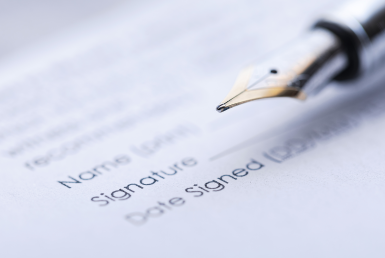The Guide To Moving House

Moving House Simplified
With the excitement of buying a new property and all the plans and dreams that go into the purchase comes the often daunting thought of the move itself. Moving house is notoriously stressful – and understandably so. Time limits, busy lives, and the sentimentality of our belongings combine in the perfect formula for anxiety. If you are downsizing, that comes with added challenges and concerns.
At Property.CoZa, our focus is always the joys that come with buying and selling property – and this experience should not be diluted by moving stress. Our team of property specialists are here to help every step of the way in the buying, selling, and rental process. As with everything, knowledge is empowering. That is why we have put together this helpful moving guide to help you mentally and practically prepare for your big move. From what to expect from the moving process to a helpful moving checklist for success, use our guide to ensure you have covered all the bases in the build-up to moving day.
The Build-Up To Moving Day
Plan Ahead
Do not leave things to the last minute (a common characteristic among many stressful moves). Moving house is not to be underestimated. There are many steps in the process and clever planning can make for plain sailing. The first step is to confirm the dates of the move. This will give you the tools you need to create a timeline. You should start getting quotes and booking moving services about a month before the move.
Begin Decluttering
It is the human condition to collect more stuff than we need. For some, this is a matter of a small spring clean come moving time. For others, this involves sifting through a mountain of things, working out what to keep and what to throw out. You should begin decluttering as soon as possible, but at least three weeks before the move.
Once you have an idea of what you are going to keep, try to plan where in your new house these items will go. The best packing plans involve unpacking plans.
Create an Inventory
As you declutter, put together a list of items you need to move. This will give you an idea of exactly how much needs to be moved and prevents items from being misplaced or lost in the busyness of moving day. This list could also form the basis of your quote from removals companies. It also helps with quick identification of anything that has not made the move. When it comes to unpacking, creating an inventory per room and per box makes for easy unpacking too.

Get Packing
Start packing as soon as you can. Getting ahead early will reduce the strain the closer you get to moving day. Pack the things you use least and those that have made the cut from your decluttering first. Aim to pack your essentials in the week leading up to the move.
Some parts of your kitchen will be packed last. Try to avoid stockpiling frozen foods that may go to waste in the move. Also, your freezer may need defrosting in the days leading up to the move, so set yourself a reminder to ensure this is done.
Cleaning as you go is courteous and doing this as you go saves time and money.
Quantify the Costs
Once you have signed the purchase agreement on your new home, the different steps come with certain costs. Find out what to expect and when from your real estate agent. An example of some costs that will become due in the moving process include:
- Your deposit
- Packaging materials
- Removals company, van hire, fuel and other moving services (whether outsourced or privately handled)
- Storage
- Insurance fees where not included in existing cover
Nail Down How the Move Will Happen
Think about the services you need for moving day and come up with a plan of action. This will form part of your cost planning, but could include the following services:
- Packaging
- Packing
- Removals companies
- Child minders
- Pet sitters or kennels
- Cleaning and maintenance teams for once the move has happened
If you aren’t given much time to move, it may be difficult to find removals companies that are available over weekends. If this is the case, book a midweek slot and ensure you make arrangements for leave on that day.

Keep Everyone in the Know
Notifying people and companies about your intended move is no small task. In advance of moving, take the time to write down a list of contacts who need to know about your change of address. This includes personal contacts, but also mail subscription services and the source of mailed bills. Your address is also important for the bank, cellular companies, insurance companies, and many financial institutions, so it is a good idea to make these a priority on your notifications list. The rule of thumb is to give 30 days’ notice before your move.
Shift Insurance, Security, DSTV, and Landlines
Make plans to move your home insurance over to your new property. It is also important to liaise with your insurance broker or insurance company to find out about cover at every point in the process. This is vital to ensure you are covered for losses before, during, and after the move. Work out seamless cover to avoid issues if things go wrong.
Contact your security company, DSTV, Telkom and any other service provider. If a callout is required for any reason, this will give you ample time to make the necessary arrangements. This should be done at least a week before the move.
Inspect Your New Property
It is a good idea to go round to your new property before moving day to make sure it is ready for you to arrive. Inspect the property for pests, vandalism or crime, cleanliness, and other factors and give yourself sufficient time to address any issues for a smooth move. When it comes to pests, you may not be able to see these with the naked eye, so enlisting the services of a pest control company beforehand offers the path of least resistance should there be unseen bugs about. This should take place around a week before moving day.
Take Advantage of Vacant Premises
Once your property’s predecessors have moved out, you are faced with an opportunity of empty spaces. The inconvenience of moving furniture out of a room for painting or renovations down the line can be easily circumvented if you are willing to go through this process prior to the move. Fumigation and carpet cleaning are good things to schedule if you are given a window. Work within the realms of what is possible, however. Do not put undue stress on yourself if time is limited or if the renovations you have in mind are complex.
Do Meter Readings
To avoid any mix-ups around electricity and water bills, take meter readings at both your old and new properties on moving day. Taking photographs is a good way to back this up in case of a dispute down the line.
Make Arrangements for your Old Property
If there is any maintenance or cleaning that needs to happen in your old property, make arrangements in advance. For your electricity and water accounts, you will be required to pay these accounts upfront and transfer these into the names of the new owners. The old owners of your new property will be required to do the same.
Moving House: The Day of The Move
The Final Pack
An early start is a great way to get ahead of the day in a move. Go through the house and pack anything used the night before and do final checks.
Get Everyone Settled
If you need to drop children off with friends or babysitters – or if your pets are sitting out the move at a kennel – arrange for this to be done early and get everybody settled for the day so you can get going with the move.
Co-Ordinate Removals Companies
Give clear instructions to the people assisting you. You should have a plan on priority unpacking. Communicate this to the movers. If you have cleaners helping you as you move in, make sure they are aware of what will be unpacked and when.
Your First Meal In Your New Home
For many movers, your first meal in your new home will be some form of takeout. From how to cook convenience meals to how to eat them without unpacking crockery and cutlery boxes, simplicity is key. Take the chance to unwind and make your first memories in your new home.
After Moving House: What To Do After The Move
Unpack by Importance
On moving day, the most important thing will be arranging a place to sleep, bedding, toiletries and towels. Create a list of priority rooms for unpacking and tackle these room by room. Don’t try to do this in a day. After a big move, this could be the straw that breaks the camel’s back.
Clean as you go. There will be a lot of cardboard, tape, and waste following the move. Get everything ready for recycling and disposal – and settle in without a reminder of the move in your space.
Change the Locks
Sometimes it is better to be safe than sorry. For the security-minded, changing the locks of exterior doors should form part of the moving process. If you can do this as soon as the previous occupants have left, even better.

Do the Admin
Reconnecting DSTV and your landline, as well as your wifi router, and ensuring your utilities are functioning and being billed correctly are some of the administrative tasks you will have to undertake.

Get Going on DIY Projects
A new property normally comes with a few DIY tasks like fitting curtains and blinds, touching up paint, and putting your stamp on the house by decorating and gardening. Create a checklist in order of importance.
Work With Property.CoZa For Simplicity in Every Property Transaction
Find an agent, use our property listing services, buy or rent private and commercial properties, get property news and helpful online property tools from Property.CoZa.




